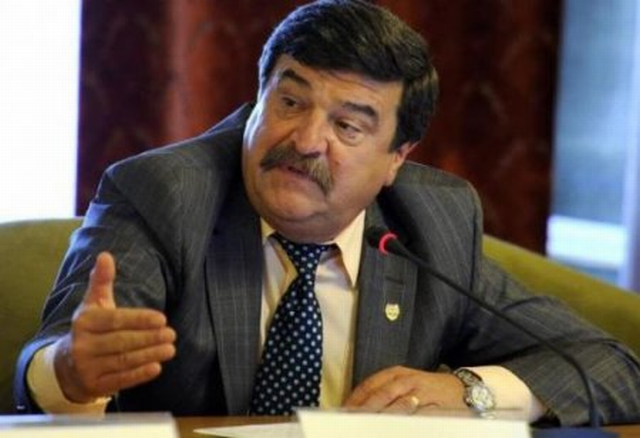Romania’s politicians and the fight against corruption
The investigations into a former Constitutional Court judge and the MPs refusal to lift the immunity of one of their own are the latest episodes in the fight against corruption in Romania.

Bogdan Matei, 12.03.2015, 14:44
Compared with the beginning of the year, when new arrests were being made every day in Romania, this month has been relatively quiet. The former Constitutional Court judge Toni Grebla has grabbed all headlines recently. He resigned last month following allegations of corruption and was subsequently detained for involvement in a number of corruption-related crimes. On Wednesday however, the Supreme Court ruled that investigations would continue, but that Grebla does not have to remain under arrest.
The allegations against Grebla include influence peddling, commercial activities that were incompatible with his position as a Constitutional Court judge and the creation of an organised crime group. He is also suspected of trying to export food products to the Russian Federation via Turkey, thus violating Russia’s ban on imports from the European Union.
Not to mention his attempt to sell 50 goats of an allegedly “special breed” for 300 euros each, a failed transaction which ultimately put an end to the public career of one of the longest-serving and paradoxically, most respected politicians in Romania. He entered the political stage 25 years ago, very soon after the toppling of the communist regime, as the head of the post-communist left in the southwestern county of Gorj. He later served two terms as Member of Parliament before being appointed a Constitutional Court judge.
An equally familiar figure in Romanian politics, Laszlo Borbely is a member of the Democratic Union of Ethnic Hungarians in Romania and has been an MP since 1990. He became the target of anti-corruption investigations four years ago, when a case was opened against him for influence peddling and bribe taking. The Anti-Corruption Directorate asked Parliament to lift Borbely’s immunity, but its request was rejected on Wednesday. This has fuelled speculations about an agreement between the parliamentary majority dominated by the Social Democratic Party and the Democratic Union of Ethnic Hungarians to support the government in Parliament.
The Social Democrats firmly rejected the scenario, while the Liberals in opposition say an agreement to reject the prosecutors’ request would have been impossible. According to the media, Parliament, which is extremely unpopular, will become even more so, because it will again be accused of shielding its members suspected of breaking the law. At any rate, the result of Wednesday’s vote is hard to explain, all the more so as three weeks ago, the Chamber of Deputies’ legal committee was in favour of lifting Laszlo Borbely’s parliamentary immunity.






























